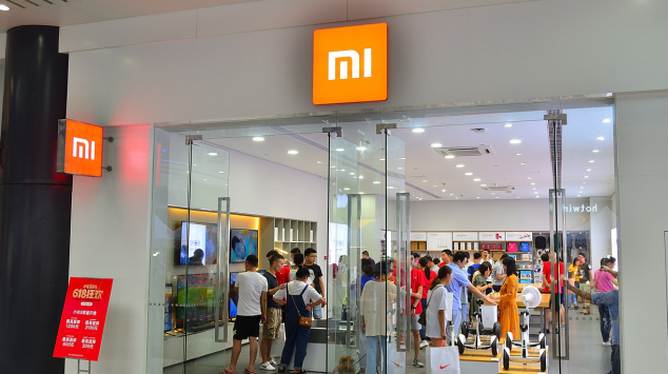TECH NEWS – At the Conference of Parties (COP29) of the United Nations Framework Convention on Climate Change, hailed as the year’s most significant climate summit, Xiaomi Corporation (hereinafter referred to as “Xiaomi” or the “Group”) – a leading global manufacturer of consumer electronics and smart devices, which is based on a smartphone- and smart hardware-connected Internet of Things (“IoT”) platform – presented its sustainability strategy grounded in its core technologies. The company also unveiled its latest advancements in carbon management within its “Human x Car x Home” smart ecosystem, marking another strategic step forward for Xiaomi in climate governance.
In a speech delivered at the China Pavilion of the conference, Alain Lam Sai-wai, the Group’s Vice President and Chief Financial Officer, who is also the President of Airstar Digital Technology, provided an in-depth analysis of Xiaomi’s latest sustainability strategy driven by its core technologies. He highlighted Xiaomi’s goal to make artificial intelligence accessible to all, achieve sustainable development within its ecosystem, and take responsibility for its core technologies. Xiaomi is committed to its “Human x Car x Home” smart ecosystem strategy, aiming to offer a sustainable, smart lifestyle to consumers through its core technologies and AI-driven innovations. “Through smart manufacturing, AI innovation, and new retail models, Xiaomi has not only increased its production efficiency and economies of scale within its smart ecosystem, but it has also enhanced the integration and efficiency of its supply chain, optimizing resource utilization and energy consumption ratios,” said Alain Lam Sai-wai.
Integrating AI with Core Technologies for Practical Green Innovation
In his speech, Lam outlined how Xiaomi’s “Human x Car x Home” smart ecosystem strategy aims to provide a low-carbon, efficient, and intelligent lifestyle while supporting ESG (Environmental, Social, and Governance) innovation through its technologies. The Xiaomi HyperMind smart platform intelligently adjusts the operating modes of devices used in home environments – such as air conditioners and refrigerators. Through smart monitoring and settings, it ensures that each household appliance operates with relatively low energy consumption, thus providing consumers with a smart, convenient, and low-carbon experience. Xiaomi’s core technologies create a balance between convenience and environmental impact.
Xiaomi’s smart manufacturing system has achieved a high level of automation in key areas. Xiaomi’s EV factory employs its self-developed “Hyper Intelligent Manufacturing Platform” (“Hyper IMP”) system, which enhances efficiency throughout the entire smart manufacturing process – from production control to autonomous optimizations via detailed settings. This approach significantly boosts production efficiency while also reducing resource usage across different manufacturing stages. This year, Xiaomi’s SU7 series was awarded the “Low-Carbon Leader” designation by the China Automotive Technology and Research Center. The secret to this vehicle’s low carbon emissions lies in its advanced technological capabilities. For example, the Xiaomi SU7 series boasts a drag coefficient that ranks among the lowest in the world for mass-produced sedans, greatly reducing energy consumption and carbon emissions in operation. The Xiaomi SU7 Max model supports 800V ultra-fast charging technology, enhancing charging efficiency. Supported by smart and automated technologies, Xiaomi’s vehicles achieve precise energy management, optimizing driving modes to minimize energy wastage and reduce environmental impact.
Establishing a Carbon Management Standard for the “Human x Car x Home” Smart Ecosystem to Lead the Industry’s Low-Carbon Transformation
During the presentation, Xiaomi introduced its organizational standard for carbon management within the “Human x Car x Home” smart ecosystem. This guideline, developed in October, is the first to set carbon management criteria for companies operating in the “Human x Car x Home” smart ecosystem. Its primary objective is to help companies manage carbon emissions efficiently, while a secondary goal is to foster the creation of high-quality production resources through AI-based carbon management. The standard facilitates the transformation of corporate carbon management practices, reducing carbon emissions across the value chain and supporting sustainable economic and social development.
Realizing Sustainable Development through Core Technologies
Last year, Xiaomi announced a strategy focused on investing in core technologies and technologies beneficial to humanity for the long term. ESG (Environmental, Social, and Governance) practices play a pivotal role in executing this strategy. Xiaomi’s long-term success depends not only on short-term financial outcomes but also on maintaining a harmonious relationship with the environment, society, and governance. Xiaomi continues to prioritize technological advancement as a core value, placing carbon neutrality at the forefront of its operations through measures like improving energy efficiency, using clean energy, and innovating in smart manufacturing. Xiaomi is committed to leading the low-carbon transformation and upgrading the entire value chain by delivering greener, smarter, and more sustainable products and services to consumers. The Xiaomi team is working together toward a better, low-carbon future.
Source: Xiaomi Press Release
















Leave a Reply